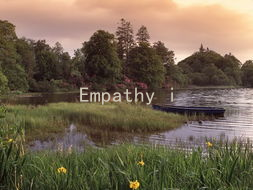The Impact of Social Norms on Relationships: Strategies for Open Dialogue
In contemporary society, social norms play a pivotal role in shaping our perceptions and expectations of relationships. From how we initiate romantic connections to the way we communicate within them, these cultural guidelines can significantly impact our interactions. As individuals navigate the complex landscape of dating and relationships, understanding and adapting to these norms is crucial. Here, we explore the impact of social norms on relationships and offer strategies for fostering open dialogue.
First and foremost, social norms dictate what behaviors are deemed acceptable within various relationship contexts. For example, traditional norms might suggest that men should take the lead during courtship, while women are expected to be more passive. However, these expectations can lead to misunderstandings and frustrations. To counteract this, couples can benefit from openly discussing their preferred styles of communication and courtship. By establishing a mutual understanding, partners can create a more equitable dynamic that respects individual preferences.
Additionally, societal pressures often influence how we perceive monogamy and commitment. Many individuals feel obligated to adhere to conventional timelines, such as getting married by a certain age or having children shortly after. These expectations can create anxiety and lead to hasty decisions. To address this, it is crucial for partners to engage in open conversations about their goals and timelines. By sharing their aspirations and concerns, couples can build a more personalized framework for their relationship, free from societal pressures.
Moreover, social norms surrounding vulnerability can pose barriers to authentic communication. Many people are taught to suppress their emotions or to avoid discussing sensitive topics like jealousy or fear of commitment. However, fostering a safe space for vulnerability is essential for healthy relationships. Partners should encourage each other to express their feelings openly and without judgment. This not only strengthens trust but also deepens emotional intimacy, allowing both individuals to feel heard and valued.

In addition to discussing feelings, couples must also navigate external social norms that can impact their relationship dynamic. For example, the influence of social media on romance is undeniable, often creating unrealistic standards and expectations. Partners should actively engage in dialogue about how social media affects their perceptions of their relationship. By setting boundaries around technology use and supporting one another in fostering a realistic self-image, couples can mitigate the potential negative influences of social media.
Lastly, recognizing and respecting differences in backgrounds and perspectives is vital in a relationship. Social norms vary widely across cultures and communities, and these influences can shape individual values and behaviors. Partners should take the time to learn about each others backgrounds and discuss any norms that may affect their relationship. By fostering an understanding and appreciation of one anothers experiences, couples can develop a more robust and resilient partnership.
In conclusion, social norms undoubtedly shape our relationships, influencing expectations and communication styles. However, by prioritizing open dialogue and addressing these influences head-on, couples can cultivate a more harmonious relationship. Emphasizing vulnerability, individual aspirations, and understanding of cultural differences can ultimately lead to stronger connections and deeper intimacy. In a world where social norms are constantly evolving, the ability to communicate effectively and empathetically remains an essential skill for building lasting relationships.





